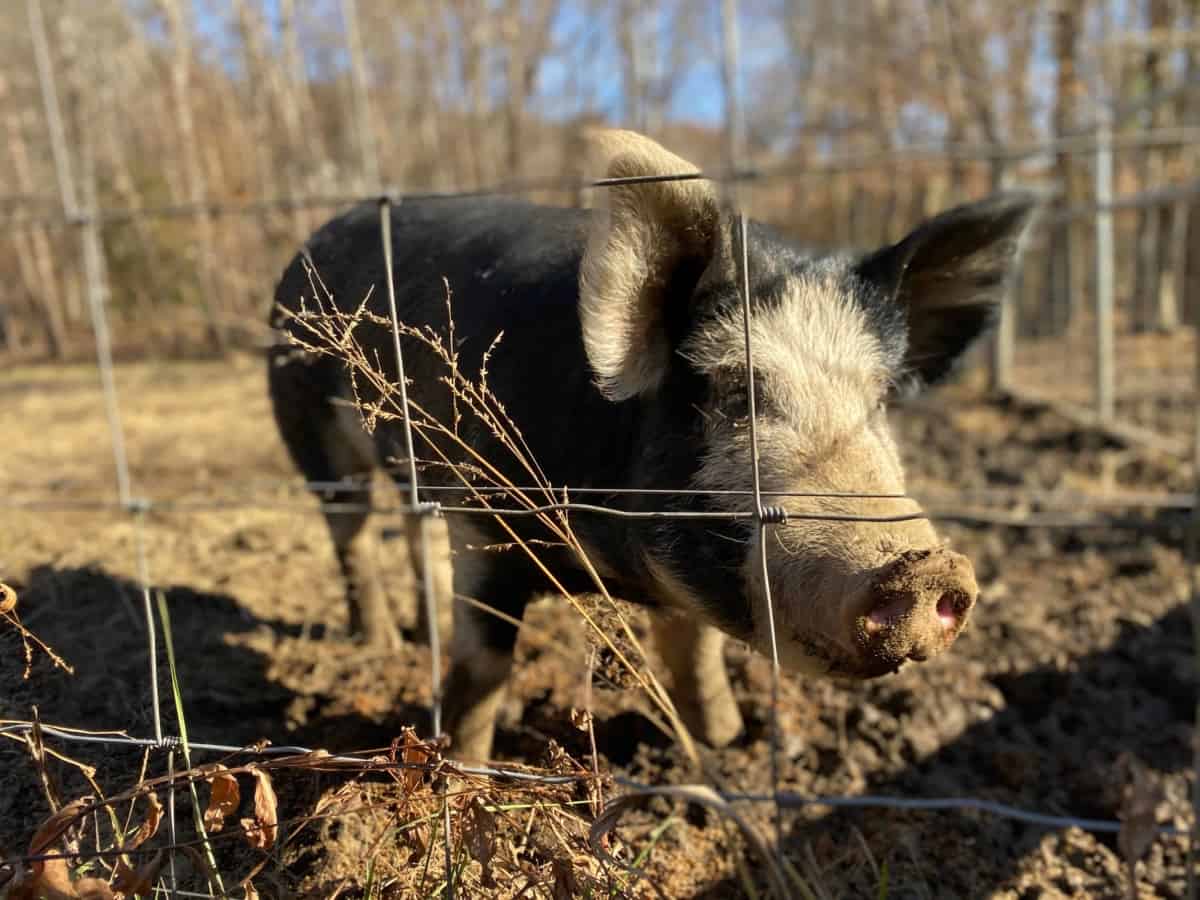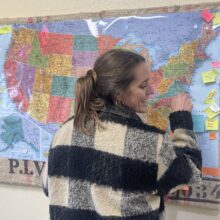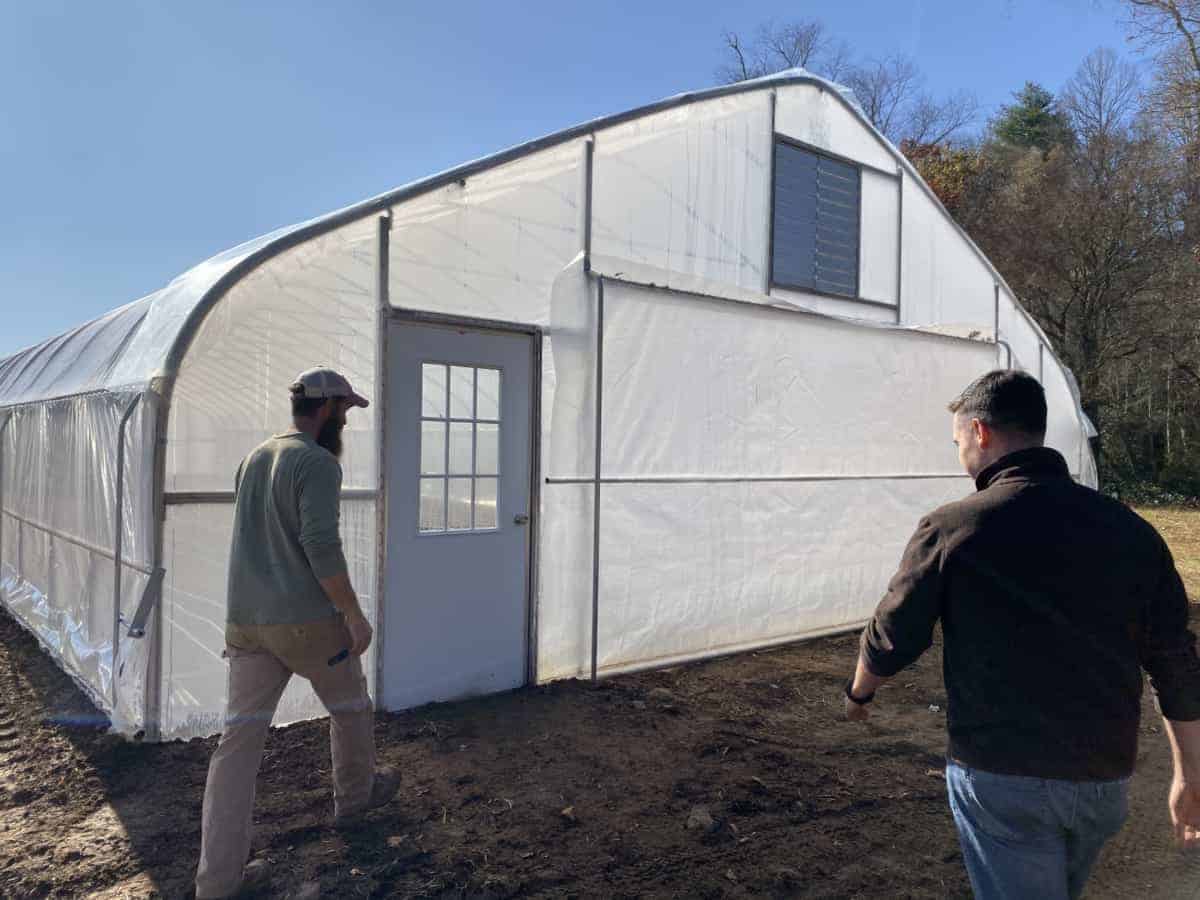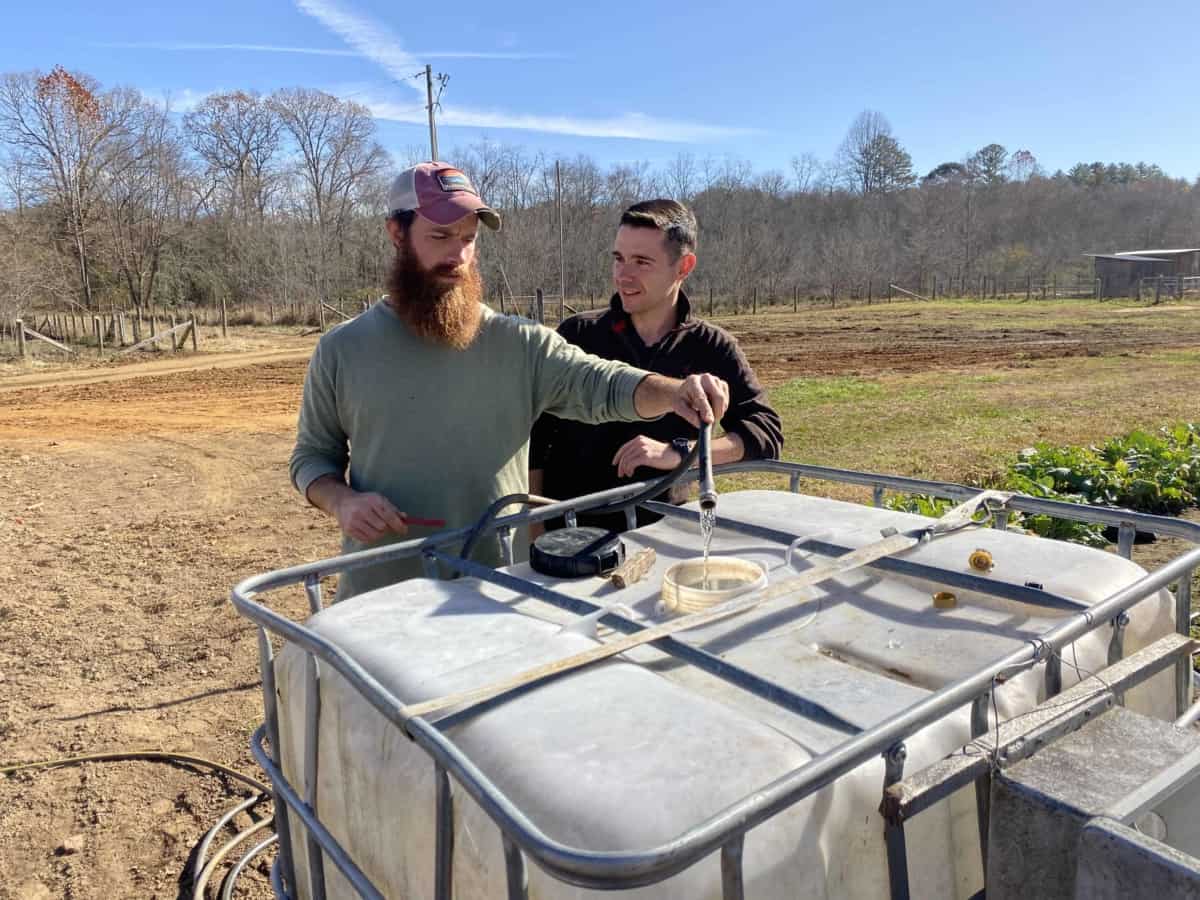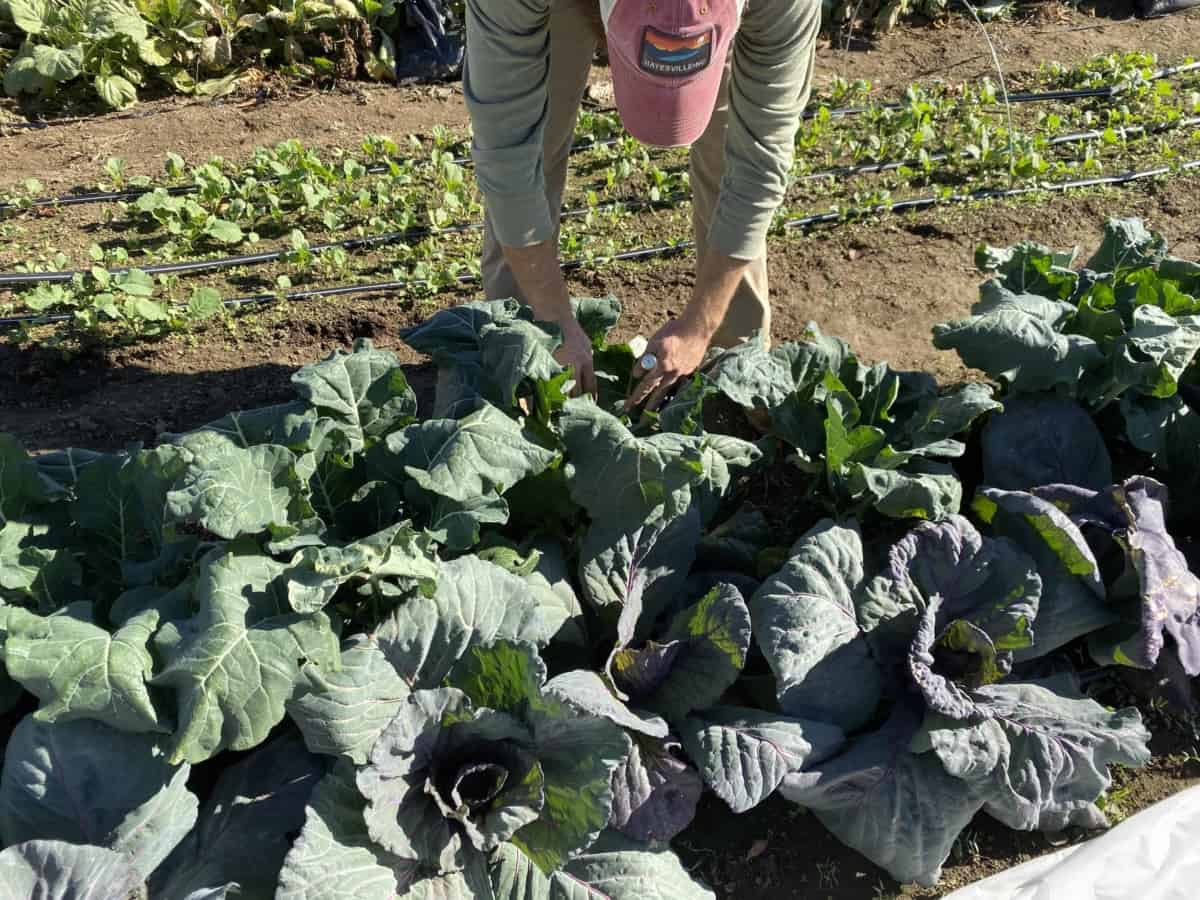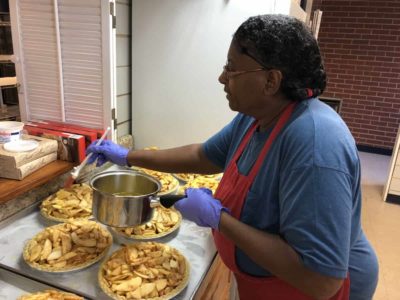This is the third piece in a series on the intersections of faith and food. Read the first piece here and the second piece here.
What do you do when a friend calls you up and says he has a couple of pregnant hogs, a berkshire boar, and 50 laying hens in need of a new home? In Bryan Wilson’s experience, you gladly accept and get to work.
For Wilson, a reverend at Oak Forest and Hickory Stand, two United Methodist Churches in Hayesville, farming runs in the family. He grew up on a dairy farm in middle Tennessee and his three brothers were all agriculture majors. He has experience with cattle, horses, and hens, and he started a garden at every church he worked with, but pigs were a different beast — literally.
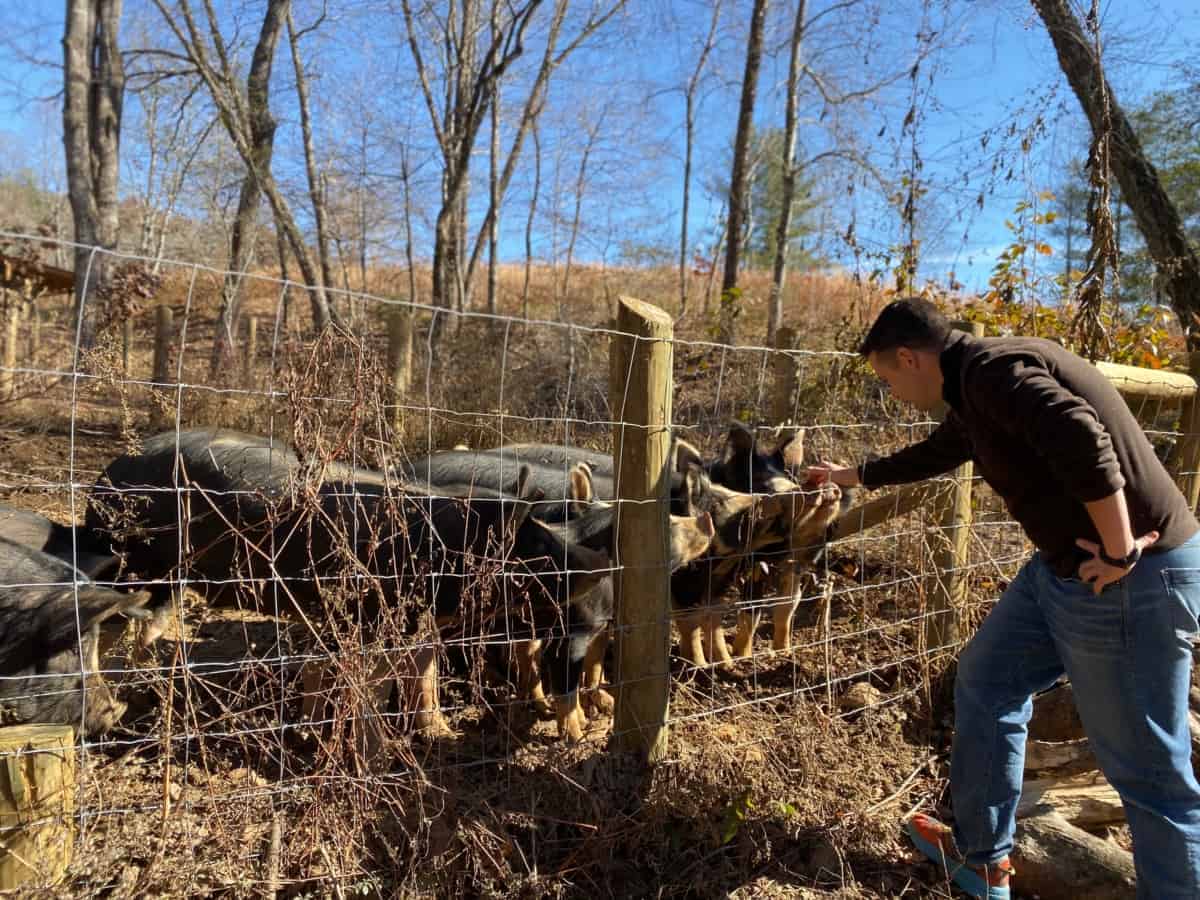

Wilson and his wife arrived in Hayesville five years ago. Prior to that, he was a student pastor in Roxboro, where they built a raised bed and kept chickens and laying hens. After making the move out west, they agreed they wanted to continue working with the land. Two members of Hickory Stand, Kathy and Keith Gibby, have property and want to be good stewards, but have jobs that keep them busy. Everyone saw an opportunity to work in partnership. Thus, the sustainable farm, Still Waters Landing, was born.
In preparation for this delivery of hogs, Wilson and a group researched and attended the Sustainable Agriculture Conference in Durham.
“The really cool thing I think about the sustainable agriculture community is there are always people out there sharing information. Farmers don’t tend to be too protective of that [information],” said Wilson.
Still Waters Landing sits on the edge of the Hiwassee River. It has grown over time with animals and produce, but also with infrastructure. Two high tunnels were just constructed thanks to the help of a community volunteer, Steve Heberger, who happens to be a local contractor. He volunteers on the farm bi-monthly and brings his crew out for the big jobs.
They help with fencing and construction, and even created the farm’s irrigation system. Heberger spotted a natural spring on the edge of the property, studied on it, and dug a reservoir. The farm now has a 300 gallon watering cube. With pressure and gravity, and a lot of gardening hoses, it can water the entire farm.
“We are practicing restorative pasture-raised practices and bio-intensive agriculture,” said Wilson.
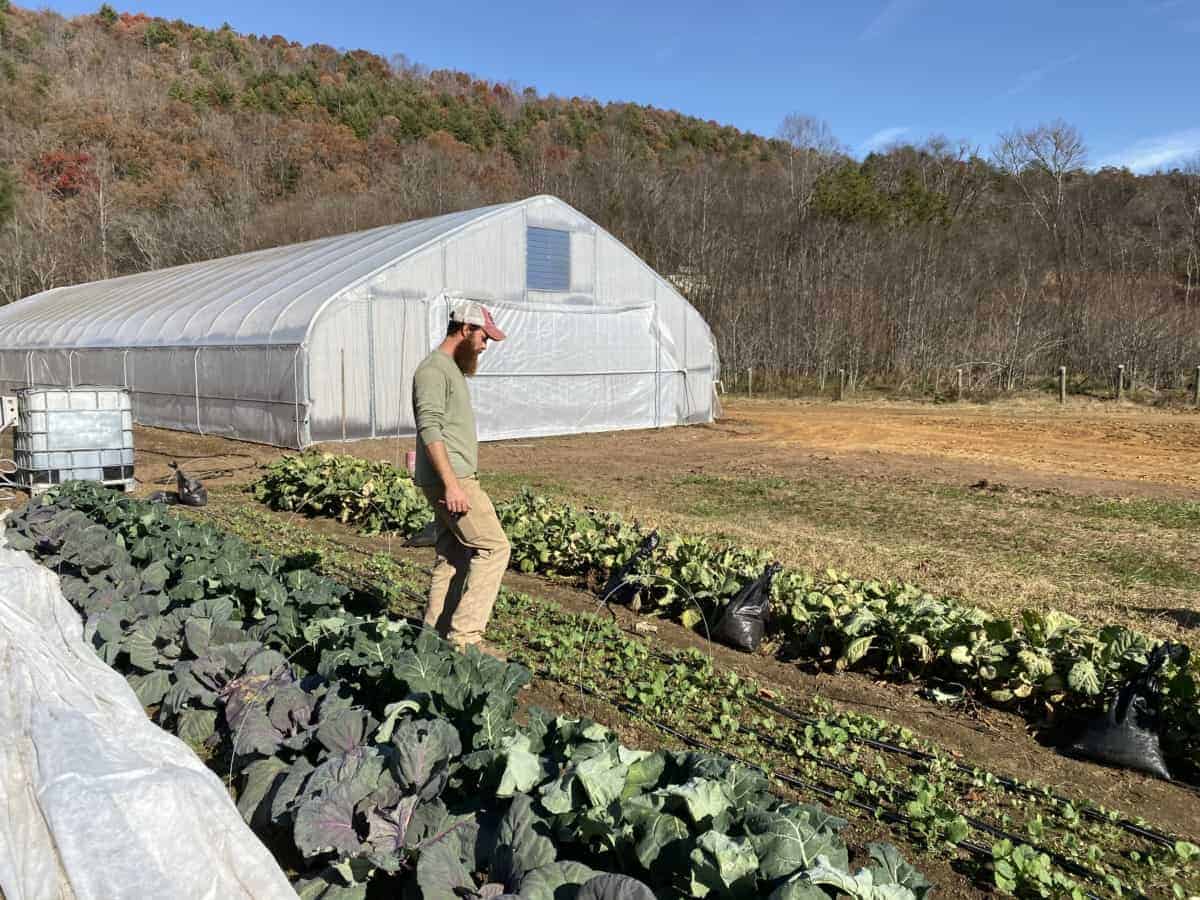

Initially, the vision for Still Waters Landing was to provide for the community. They donated to the local food bank and had a pig pickin’ in its first year that fed 600 people. Everything kept expanding, and Wilson and the Gibbys knew there was a larger principle they could exercise.
“We wanted to show that nonprofit work doesn’t have to be antithetical with good business practices, and to do that we need to hire a full time farm manager,” said Wilson.
Enter Resourceful Communities, an organization that provided a grant for fencing, feed, and help for Still Waters Landing to develop a business plan. The farm has grown to provide a CSA (community-supported agriculture) membership where local residents can sign up for a weekly box full of produce and protein. And, the farm now works with two local restaurants — Nocturnal Brewing and The Crown Restaurant — and sells directly to anyone who wants to stop by the farm. They still donate 10% at minimum of what they produce to the community. This wouldn’t be possible without Andrew Jones, the new farm manager.
Jones is a native of Hayesville. He worked as the recreation director for Clay county for over 10 years and had always done a little CSA and farmers market work on the side with his wife. When this opportunity opened up, he jumped at the chance. Jones started at Still Waters Landing in May and can’t believe this is what he gets to do every day.
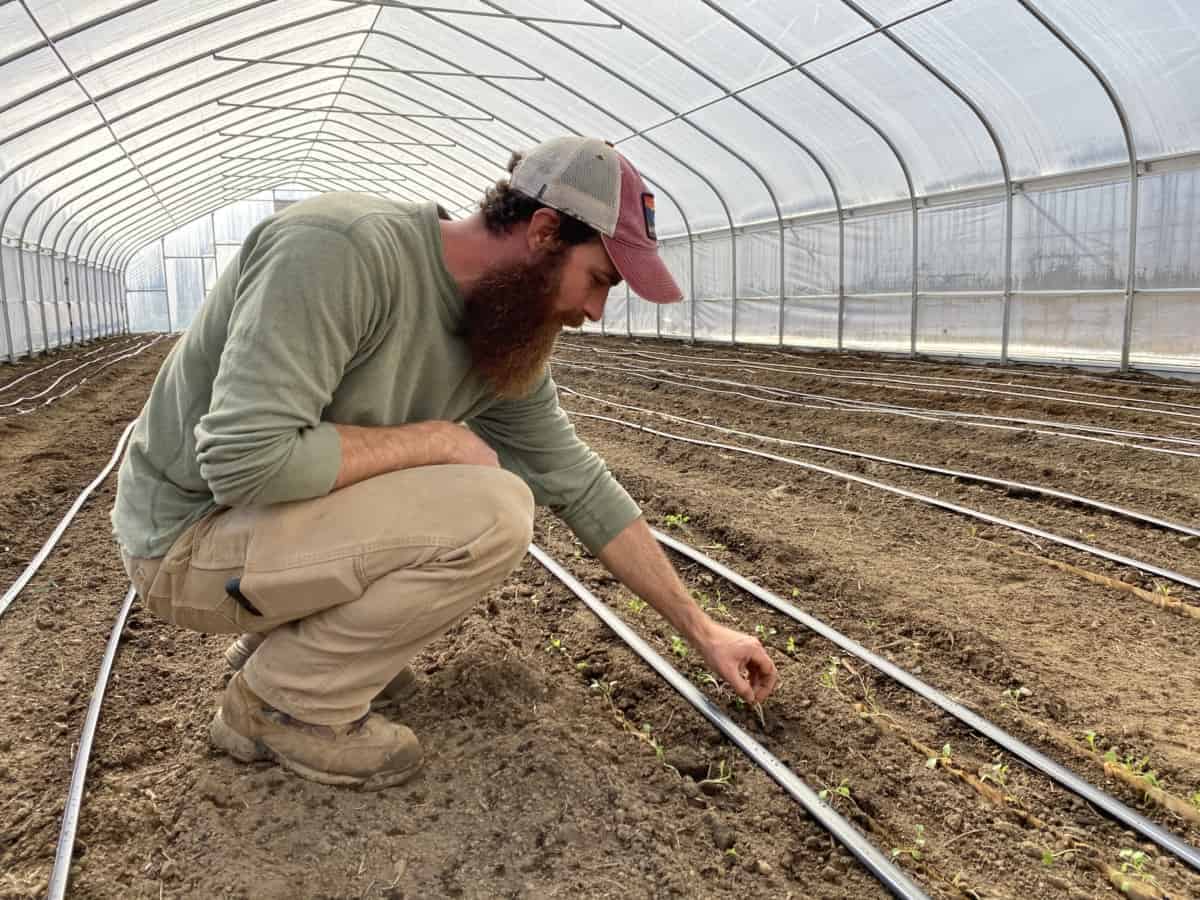

“I’ve been surprised at how well the project was received off the bat. People in the community are always talking about it,” said Jones. Demand is picking up and his job is to keep up with the momentum.
Every day looks different for Jones at Still Waters Landing. He arrives around 8 a.m., feeds the cat and pigs, inspects the fences, pulls the frost cover off the crops, and then assesses what needs to be done. He can work in the high tunnel, prep beds, get crops ready to be transplanted, call the restaurants, and more. On Fridays, he picks the produce, washes it, bags it, and delivers it to restaurants in the morning. In the afternoon, CSA customers come pick up their boxes.
Right now, Jones is harvesting hardy winter vegetables: collards, kale, turnips, radishes, broccoli, and cabbage. He works closely with the chefs at the restaurants and makes sure to take their menus into consideration.
“When we were starting this I don’t think any of us expected how eager the restaurants were going to be for this product,” explained Wilson. “The farm-to-table scene is down with the movement.”
What challenges do this region and other rural regions face? Disappearance of the family farm, said Wilson. There use to be 50 dairy farms in the area — and there is now only one in Cherokee County. The loss of land size and flight of youth all contribute to the myth that you can’t make a living in a rural area.
“Farming doesn’t equal poverty,” said Wilson. He wants local youth to know, “This is a viable vocation for you, a profitable one.”
Still Waters Landing will be providing an internship program for local high school students in the near future. Two students will work 400 hours on the farm, get a $4,000 salary, and be sent to a continuing education sustainable agriculture event every year. Another benefit: They take home half of a hog and get a free membership to the CSA.
“I’d like people to understand the challenges rural communities face, and how we offer a sign of hope here. This whole sustainable ag movement offers a sign of hope,” said Wilson.
